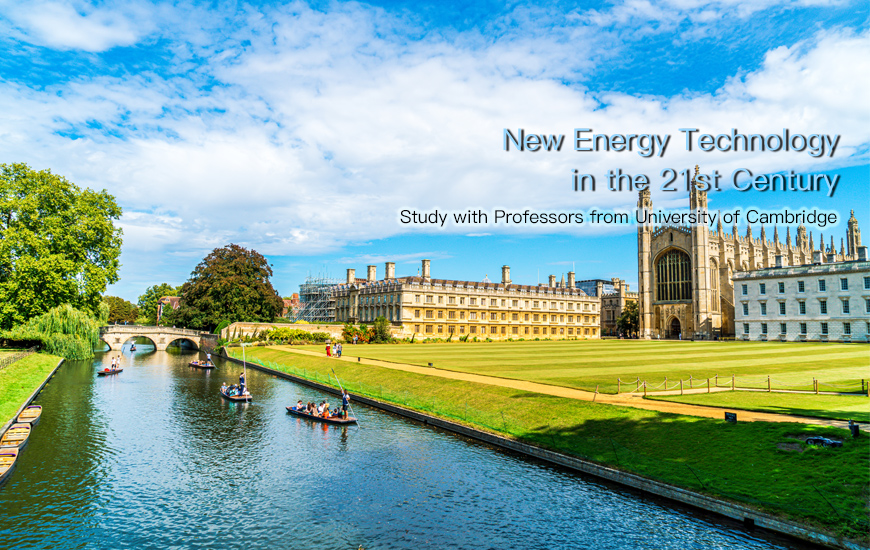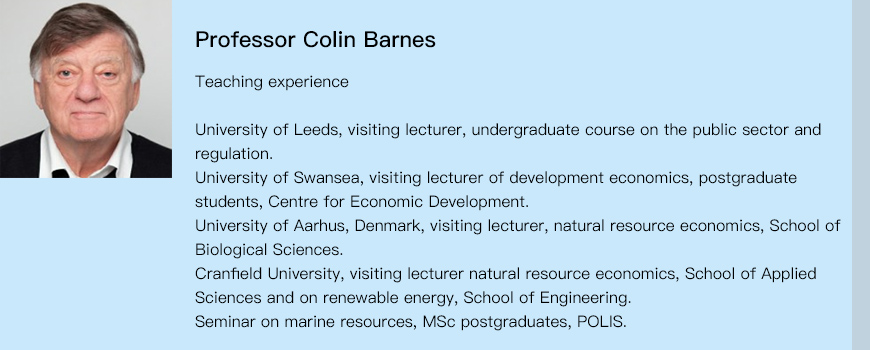New Energy Technology in the 21st Century - Study with Professors from University of Cambridge & University of Oxford


Energy has become integral to the development of all countries. Energy security and environmental problems caused by traditional fossil energy consumption such as coal, oil and natural gas have become increasingly prominent, and energy transformation is imperative. The supply of clean energy can ensure the sustainable and stable development of a country's economy. A new energy revolution with the concept of "low carbon, no carbon" at the core is booming around the world. Global energy development is changing from a high carbon energy era to a low carbon energy era, from fossil energy to renewable energy. The development of renewable energy is an important way to ensure energy security, strengthen environmental protection and cope with climate change, and it is the focus of attention of governments and academic and professional industries. What is the current situation and prospect of energy development in the world? What are the frontier technologies in the field of energy? How to use energy theory to solve practical energy problems? These questions will be answered one by one during the course.
The project contents include power plant and power grid, energy utilization in construction and transportation industries, renewable energy and future technology, offshore wind and hydrogen energy economy, geothermal systems, smart grid, clean carbon based fuel, energy technology innovation, renewable energy policy, future urban design, etc. At the end of the project, students will submit project reports and present their achievements.
Senior high school students and College students majoring in Applied Physics, applied chemistry, electrical engineering, energy engineering, environmental engineering, construction engineering, material engineering, etc., or students interested in sustainable development, development and utilization of new energy such as nuclear energy, wind energy, solar energy, biomass energy, oil and gas exploration, environmental protection and thermal energy and power engineering can apply. Students need to have a basic knowledge of physics and chemistry.
Professor Barnes has taught courses in environmental, energy, development economics and public sector economics at the universities of Cambridge, Aarhus in Denmark, Cranfield, Leeds and Swansea. He has established a network of contacts through his consultancy, Cambridge Resource Economics based in Cambridge and has worked with a number of engineering and natural resource consultancies including Arthur D Little, IPA Energy, the Marine Resource Assessment Group (MRAG), Nippon Koei and WS Atkins.

Affiliations
Teaching experience
Research Interests
The University of Cambridge is a collegiate public research university in Cambridge, United Kingdom. Founded in 1209 and granted a royal charter by King Henry III in 1231, Cambridge is the second-oldest university in the English-speaking word and the world's fourth-oldest surviving university. The university grew out of an association of scholars who left the University of Oxford after a dispute with the townspeople. The two "ancient universities" share many common features and are often referred to jointly as "Oxbridge".
Cambridge is formed from a variety of institutions which include 31 semi-autonomous constituent Colleges and over 100 academic departments organised into six schools. As of 2019, Cambridge is the top-ranked university in the United Kingdom according to all major league tables. It is a member of numerous associations and forms part of the "golden triangle" of English universities. The university has educated many notable alumni, including eminent mathematicians, scientists, politicians, lawyers, philosophers, writers, actors, monarchs and other heads of state. As of October 2019, 120 Nobel Laureates, 11 fields Medalists, 7 Turing Award winners and 14 British Prime Ministers have been affiliated with Cambridge as students, alumni and faculty or research staff. University alumni have won 194 Olympic medals.
For more information, please contact us.

